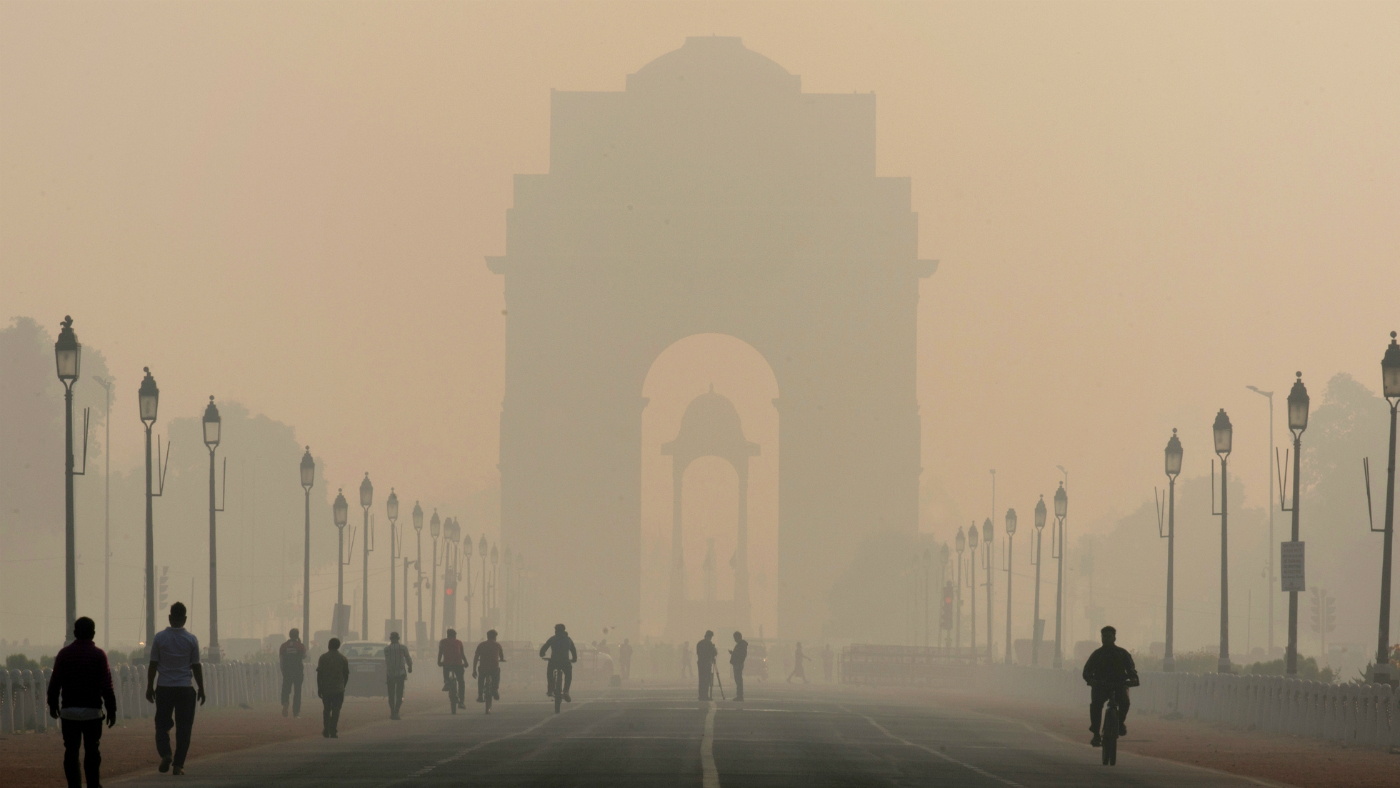Cleaning up India: will citizens be compensated for pollution?
Supreme Court says Indian states may be forced to pay for failing to tackle growing crisis

A free daily email with the biggest news stories of the day – and the best features from TheWeek.com
You are now subscribed
Your newsletter sign-up was successful
India’s failure to halt worsening air and water pollution in Delhi and other major urban areas has prompted the country’s Supreme Court to threaten to make states pay citizens compensation.
Justices Deepak Gupta and Arun Mishra were damning in their criticism of the federal and local governments. “The government cannot provide clean air and water to the citizens in its capital city,” Mishra said. “What is the point of all this development? What is the point of being a world power?”
The judges gave the individual state legislatures of India six weeks to explain why they should not be held accountable “for their failure in discharging their duties”.
The Week
Escape your echo chamber. Get the facts behind the news, plus analysis from multiple perspectives.

Sign up for The Week's Free Newsletters
From our morning news briefing to a weekly Good News Newsletter, get the best of The Week delivered directly to your inbox.
From our morning news briefing to a weekly Good News Newsletter, get the best of The Week delivered directly to your inbox.
How bad is pollution in India?
India has grappled with extreme pollution levels for years, particularly in the north of the country.
The BBC reports that 22 of the world’s most polluted 30 cities in 2018 were in India, while The Guardian says that this month Delhi “has endured one of the worst periods of pollution on record, with a thick brown smog limiting visibility and causing burning eyes”.
The air quality index, which measures airborne pollution, has regularly recorded levels in the capital that are more than ten times higher that deemed healthy by the World Health Organisation (WHO).
A free daily email with the biggest news stories of the day – and the best features from TheWeek.com
On Monday, the air quality index figures reached 339. A healthy level is considered to be anything between zero and 50.
Much of India’s pollution problem is down to vehicle fumes and industrial emissions, particularly in the northern states of Punjab, Haryana and Uttar Pradesh. Another major problem is so-called stubble burning, where farmers burn off the remnants of their crops after harvest, causing dense smogs.
Al Jazeera reports that the Indian government has “consistently maintained there is no direct correlation between air pollution and deaths”, but experts have linked air pollution to a third of fatalities from lung cancer in India.
And the findings of a nationwide survey in 2017 suggest that 12.5% of all deaths in India - around 1.2 million a year - can be “attributed to unusually high rates of lower respiratory infections, heart disease, strokes, lung cancer, and diabetes, which are a result of severe air pollution”, says Quartz.
–––––––––––––––––––––––––––––––For a round-up of the most important stories from around the world - and a concise, refreshing and balanced take on the week’s news agenda - try The Week magazine. Start your trial subscription today –––––––––––––––––––––––––––––––
What else did the Supreme Court say?
The Supreme Court judges didn’t pull their punches in their tirade against the authorities this week.
“We have become a laughing stock,” Mishra said. “People are living in a gas chamber and are dying due to cancer and other lung ailments. Their life spans are getting shorter.”
He even went so far as to say that rather than letting the citizens of India’s cities suffer high pollution levels, it would be “better to kill them all in one go, get explosives in 15 bags at one go”, reports Delhi-based news site NDTV.
The judges also expressed frustration that despite recent rulings attempting to ban stubble burning, the practice appears to be increasing.
The New Indian Express reports that the justices “posed a query” as to why state administrations should not be forced to pay compensation to its citizens for not providing clean air.
“Human life and health have been put in danger,” the court said in an order issued to all states to report on local air and water quality. “In such a scenario, why they should not be required to pay compensation to such persons who are being affected?”
The court also ordered Delhi’s local government to install air purifying towers across the city within ten days.